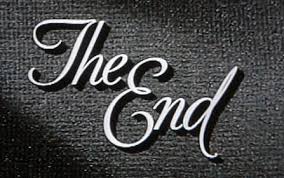How to End a Story
 Stories are like relationships: the beginning is always so much fun, and the ending is fraught with turmoil.
Stories are like relationships: the beginning is always so much fun, and the ending is fraught with turmoil.
When I sit down to start a story, the first sentence just sort of comes to me. The second sentence too. If I’m lucky, the third swiftly follows. The inimitable short story writer Kate Braverman once told a group of enraptured graduate students (they happened to be my students, and she was wowing them with her general exuberance and wonderful strangeness) that she channels her characters. A bit like spirits, some linguistically gifted version of the returning dead. They speak throughher and onto the page, as if she isn’t even there.
I, unfortunately, channel nothing. It is all rough work after sentence three. By the time I’m in the middle of the story, I’m feeling more than a little uncomfortable. Where am I going? Where have I been? Have I gotten lost in the labyrinth? Probably, yes.
Somehow, I find my way through. The characters do things. They meet with hardship and grief, or maybe they just meet some swanky fellow in a bar or a Laundromat. They get into trouble, maybe out of it. Probably not. I find myself feeling that they have done all they can do. Not much more can be said. The action has fallen. We have all had our dénouement (which, by the way, is a French term meaning untying, from Middle French desnouement, from desnouer – to untie – from Old French desnoer, from des- de- + noer meaning to tie, from Latin nodare, from nodus knot.) And here we are in the labyrinth again, attempting to untie the knot, unwind the rope, escape the not-so-fun funhouse.
It’s time to write our way out.
One wants to resolve things, after all.One feels a deeply human need toconclude. After the falling action, there is often something more. Something unexpected. And here we come to what I have been meaning to say all along: a good ending is layered. The reader thinks she has discovered everything she can possibly discover about a story, but then: another image appears, another paragraph hums along, another question begs to be answered. One is left with the feeling of having walked out of the dark theatre into the light, only to realize there was something else playing after the credits, some secret part of the film, some final moment. You can hear it through the door, vaguely, but you can’t get back in. You’re not sure what you’ve missed, but you’re certain that you’ve missed something, that the reel kept on playing, the story kept on going, after your departure. You were only an observer, a brief malingerer, there but not there. The lives within the story carry on.
Michelle Richmond is the author of four books of fiction, including the New York Times bestseller The Year of Fog. She is the creator of the Guided Workbooks for Writers series.

